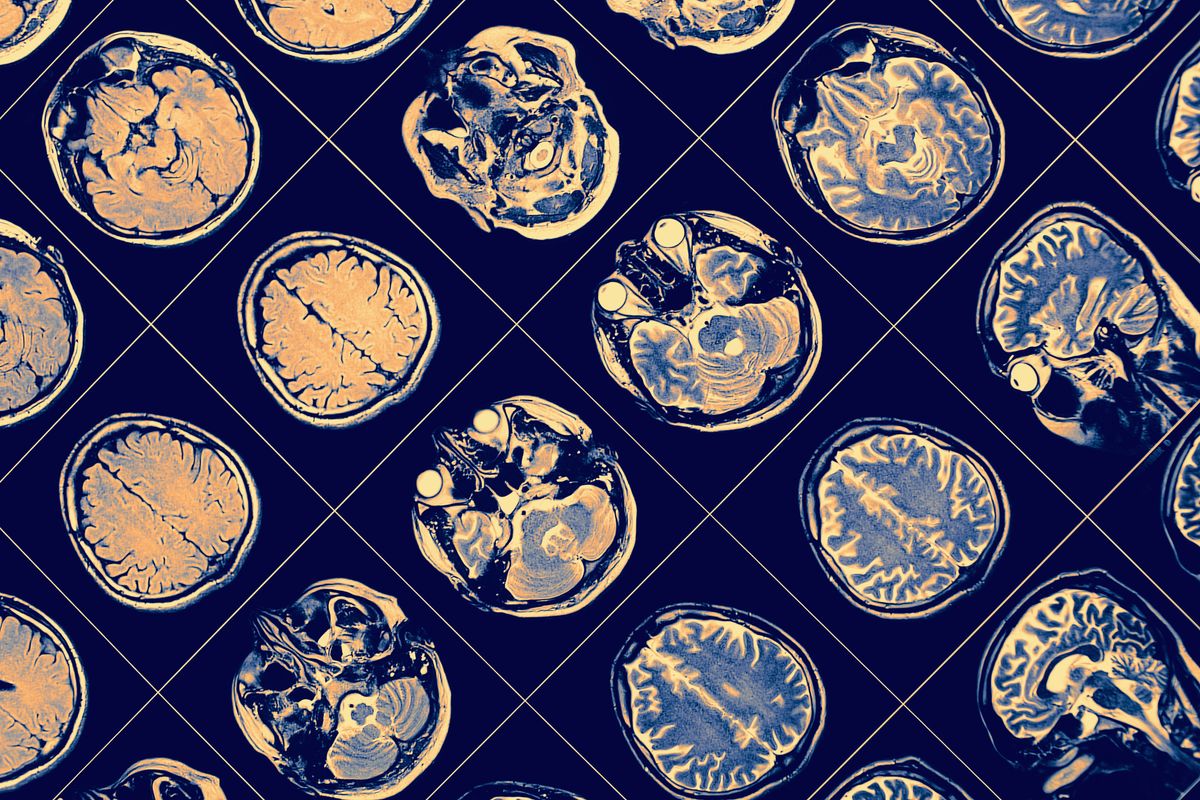Schizophrenia is one of the highest risk factors for dying from COVID-19, second only to age, according to a new study.
In previous studies, especially those with mental illness depression And schizophrenia —Conditions that distort thinking and perception — were at high risk of being infected with SARS-CoV-2, the virus that causes COVID-19. However, it was unclear whether mental illness was also associated with the risk of death from COVID-19.
In a new study, researchers examined health records from 260 outpatient clinics and four hospitals throughout New York City, based on data published by New York University’s electronic health records. Of the 26,540 patients tested (approximately 4,500 were excluded for a variety of reasons), 7,348 adults tested for COVID-19 positivity between March 3 and May 31. ..
Relation: 20 of the worst fads and pandemics ever
Patients with reported psychiatric disorders were then categorized into one of three categories: schizophrenia spectrum, mood disorders, or anxiety disorders and compared to COVID-19 patients who were not diagnosed with psychiatric disorders. .. They are gender, age, race, and known risk factors for COVID-19 (hypertension, Diabetes, Heart disease, chronic obstructive pulmonary disease, Chronic kidney disease, Smoking and cancer.
In the meantime, of the more than 7,000 adults who were positive for coronavirus, 75 patients had a history of schizophrenia. 564 had a history of mood disorders. 360 had a history of anxiety disorders. Overall, 864 of COVID-19 patients died or were discharged to hospice within 45 days of diagnosis.
Researchers have not found an association between anxiety or mood disorders and death from COVID-19. However, they found that people with schizophrenia were about 2.7 times more likely to die of COVID-19 than those without their mental illness. This is the second highest risk factor after age.
By comparison, patients between the ages of 45 and 54 were 3.9 times more likely to die of COVID-19 than younger patients, with or without mental illness (and the risk was every 10 years after age 54). Doubled). Patients with heart failure or diabetes were 1.65 and 1.28 times more likely to die from COVID-19, respectively.
Expected but amazing
But why is mental illness associated with the risk of dying from COVID-19?
“That’s expected, but it’s also amazing,” said Dr. Donald Goff, a senior author and professor of psychiatry at NYU School of Medicine. Studies show that people with schizophrenia have an average life expectancy reduction of 20 years. And many die early from pneumonia and viral illness, he said.
However, its decline in life expectancy was thought to primarily reflect other medical risk factors and behaviors commonly associated with schizophrenia. obesity, Heart disease and smoking cigarettes. In this study, people with schizophrenia were still at increased risk of death, even though the authors adapted to those conditions.
“There seemed to be something, whether it was a schizophrenia illness, or perhaps a very high risk of death from the drug,” Goff told Live Science.For example, the illness or drug may be confused Immune system, He said. Previous studies have shown that people with schizophrenia may have altered immune responses or mutations in genes that regulate the body’s immune response to infection.
“This is a very interesting study, especially regarding the role of the immune system,” said Dr. Norbert Müller, a professor of psychiatry at Ludwig Maximilian University in Germany, who was not involved in the study. Some psychiatrists speculate that schizophrenia is associated with what is known as an immune system activation and pro-inflammatory signaling molecule. Cytokine, He said. A common cause of death from COVID-19 is an overreaction of these cytokines, also known as cytokine storms.
“Such a mechanism is also involved in schizophrenia and is a common pathway for schizophrenia and can be a fatal course of COVID-19,” Müller told Live Science. However, he added that genes that direct and regulate the immune response may also play a role. Nonetheless, the study was limited by the small number of patients with schizophrenia and the lack of data on their psychotic drugs (the author also mentions).
The data also included only patients treated with the NYU Healthcare System and were collected during peak outbreaks when most of New York City was being tested for high-risk, symptomatological people.
“There was such a high rate, the whole system was about to be overwhelmed, and the treatment was not as effective as the current treatment,” Goff said. Since then, “Although absolute mortality has declined overall, we believe that this is most likely true that people with schizophrenia are at higher risk. “
Goff and his team are currently doing more research to find out if there are biological reasons why patients with schizophrenia may be at higher risk. But for now, “I thought it was important to get people’s attention,” Goff said. He added that people with schizophrenia should be among those who “prioritize vaccines.”
The findings were published in the journal on January 27th. JAMA Psychiatry..
Originally published in Live Science.




